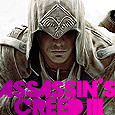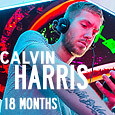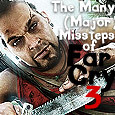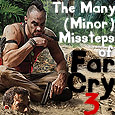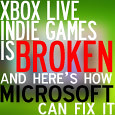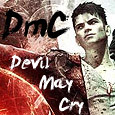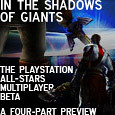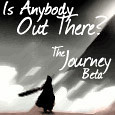When was the last time you downloaded something from Microsoft's Xbox Live Indie Games service? Have you ever? Do you even know where it's located in the Dashboard? Is this the first time you've thought about the service since it launched in February 2008?
I wouldn't blame you for being unaware of the Indie Games platform. It's buried so deep in the Xbox 360's Dashboard you'd need a GPS to find it. It's Microsoft's ugly stepchild, the one they keep in the basement when company is over. It's that thick, dusty encyclopedia on their bookshelf that they love to brag about, but never actually read.
So for those of you understandably unfamiliar with Xbox Live Indie Games, it's a way for someone like you or me to develop and sell our own Xbox 360 games using Microsoft's free XNA toolkit, with minimal certification. Just pay $100/year to join the "Creator's Club" and you're set.
Sounds like it should be a bastion of raw creativity, right? Well, not exactly.
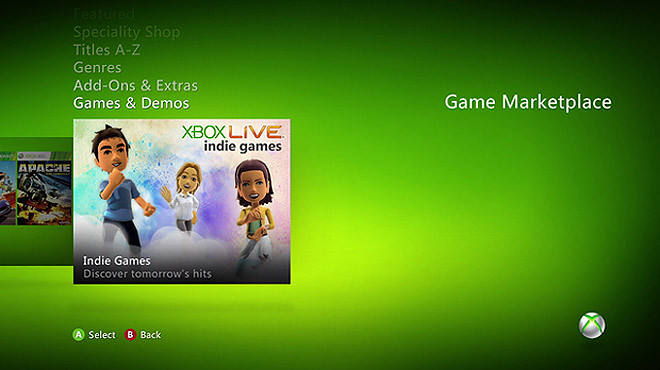
"[Xbox Live Indie Games] has a bad reputation because there's no sort of quality control," Tommy Refenes of Super Meat Boy developer Team Meat told me over Skype. "Just a lot of shitty games for a dollar. People go, 'Well, I can safely ignore this entire channel because 90% of the games are just not good.'"
That lack of quality control is actually one of the biggest draws of the service for developers. Pay the fee, make your game, put it up, done. And in three years, there have been almost 2000 games released for the service. For comparison, there are about 400 games currently available on Xbox Live Arcade, Microsoft's premier download service that launched with the Xbox 360 in 2005.
For consumers, that's a nightmare.
"It's turning into the [iOS] App Store," said Edmund McMillen, the other half of Team Meat, in the same interview. "All the top games are Minecraft clones. It's becoming a joke just like the App Store."
He's not wrong. Take a quick glance at the best-selling games on the service and you'll find two Minecraft clones, two massage applications (they rumble your controller), a voice changer, and a charming little title called Baby Maker Extreme where you fire a newborn baby from its mother's uterus and make it bounce as far as you can.
Those are some of the best-selling Indie Games of all-time.
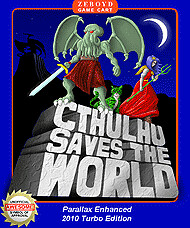
Mind you, there are some high-quality games on the service. Breath of Death VII and Cthulhu Saves the World, recently released on Steam, began life on Xbox Live Indie Games in 2010. Shortly after their Steam releases, developer Zeboyd Games announced on its blog that it had "already made more revenue in less than a week on Steam than we have in over a year and a half on the Xbox Live Indie Games service." Ouch.
I asked Robert Boyd, half of Zeboyd Games, whether he would consider PlayStation Network as an alternative to Indie Games: "Based on the huge success of our PC launch, we'll probably stick with the PC for the time being."
"I don't think anybody would be surprised by that," McMillen said of the disparity between Zeboyd's Steam and Indie Games sales, "because they weren't on Xbox Live Arcade. They were on Xbox Live Indie channel—"
"—which is promoted like absolute crap," finished Refenes.
I brought up the Summer Uprising program, a community-driven promotion designed "to promote Xbox Live Indie Games in the best light possible by showcasing the diversity, talent, and potential of the platform as a whole," according to its website.
"I had no idea it was up to the developers to make a Summer of Arcade-type situation and Microsoft basically doesn't do anything," said McMillen.
Summer Uprising, which will run from August 22 to September 2, is being organized by Dave Voyles and Kris Steele. They've already picked eight of a planned 10 games for release during the Uprising and are working hard to promote it with trailers, press releases and interviews.
"A lot of people look at the [Indie Games] platform as a joke, and a lot of it is," admitted Voyles in a Skype interview. "But there's a lot of talent, too. It's just not an intuitive marketplace."
Steele agreed, criticizing Microsoft's decision to have the Indie Games channel immediately dump players onto the list of newest games.
"Instead of gamers seeing the best we have to offer, or a selection of recent best," he said, "they see everything new, which isn't necessarily good. And when they find titles that aren't very good, they might assume that that's [all] we have to offer and they don't come back."
So then just sort it by user ratings, right? Wouldn't that solve that problem? Unfortunately, no. The rating system in Xbox Live Indie Games hasn't exactly been known for its purity in the past.
"All the top games are Minecraft clones. It's becoming a joke just like the App Store."
// Edmund McMillen
After several developers complained of being targeted for rating manipulation abuse, where some developers were asking fans to rate their own games highly and competing games poorly, Microsoft finally responded by changing the policy on how Indie Games could be rated so that "only users with Xbox LIVE Gold subscriptions will be allowed to rate content on the Xbox.com website."
However, it still doesn't require you to have actually played the game you're rating. Contrast that with PSN, where you can't rate any piece of content unless you have already downloaded it first.
So you're left with a platform flooded with bad games, completely ignored by Microsoft and the majority of Xbox 360 users, where the good games either can't sell or are unfairly rated by people who haven't even played them. It doesn't really make sense, does it?
I mean, Microsoft is offering something pretty unprecedented here: a chance for any gamer with a spark of inspiration to dip their toe into game development on a major gaming console. Neither Sony nor Nintendo offer that. Shouldn't Microsoft be singing their own praises every week, picking standout Indie Games from their community and saying, "This is what you can do on Xbox 360"? If nothing else, shouldn't Microsoft at least care about making extra money from Indie Games?
"Microsoft doesn't even care about money," McMillen countered. "They've got all the money. So they don't care about making money on anything. That doesn't matter. The only way Xbox Live Indie Games could be something they would get behind is if it was doing so many high numbers that they could get behind it. They don't need money. What they need is for people to say to their friends, 'Hey, Xbox Live is the biggest,' or, 'Hey, Xbox is the biggest because it's getting the most sales.' That's what matters. Sales numbers matter. They want to break previous records and they want to break other people's records."
Fair enough. But no Indie Game is going to break sales records unless somebody gets behind it and bellows from a mountaintop about why players should check it out. And that's where the Summer Uprising comes in.
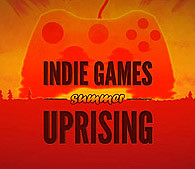
When I spoke with Voyles and Steele, I could tell they "get it." These are guys that see potential in the Indie Games platform that even Microsoft can't, and they're not waiting around for Microsoft to finally recognize it, either.
"It's kind of like we're filling in Microsoft's role with the Uprising," Voyles said. He pointed to a recent post on Twitter by Epic Games' Vice President Mark Rein promoting an iOS game that uses Epic's Unreal Engine 3. "Why [Microsoft] wouldn't do that, I don't know."
Steele, who has published four games on the platform, said that the developers he's talked to have been requesting a more robust XNA toolkit from Microsoft that allows for Achievements, leaderboards and Kinect support to make their games more attractive to consumers. While there are obvious problems with allowing Achievements in user-created games, I was surprised to learn that leaderboards and Kinect support are still absent from the service. Steele thinks Windows Phone 7 might be to blame.
"Xbox Live Indie Games shares a lot of the same resources with Windows Phone 7, and that seems like it's more of a priority to Microsoft," he said, outlining some recent changes to XNA that seem more geared toward phone development.
While everyone I talked to had different theories why Microsoft hasn't thrown its weight behind Xbox Live Indie Games, they all pointed to Steam as the model for Microsoft to follow.
"It's hard to even talk about Steam," McMillen said. "There's nothing wrong with what they're doing. Everything's perfect. That's why things sell, because they have a little ad for even the most obscure indie game that goes up there."
But McMillen also makes a crucial distinction.
"The hardest part with Steam is actually getting your foot in the door," he said. "In order to get your foot in the door, you have to be legitimized in some way, shape or form." He goes back to Cthulhu Saves the World, saying that Zeboyd Games might not have gotten on Steam without proving themselves on Xbox Live Indie Games first. And sure enough, here's what Boyd told Armless Octopus in July:
To be honest, I don’t know that we could have even managed to convince Steam to distribute our games if we hadn’t been able to point at the positive reviews that the XBLIG version had gotten. [...] I think XBLIG is a great choice for new developers to gain experience and build a resume even if it might not be the best choice for actually making money.
"It's also important not to give anybody any false hope," McMillen said. "I'd say the majority of indie games that are out don't launch on Steam. Like VVVVVV. It came out months before, and [creator Terry Cavanagh] did it independently, and that's how he got on Steam."
Refenes agreed, saying that many indie developers are "expecting to do Castle Crashers numbers" with their first game.
McMillen added, "You're gonna have to go through those hoops in order to get to the places you want to get to regardless of any situation. If you're starting out and no one knows who you are, you're gonna have to pay your dues. And Xbox Live Indie Games is part of that."
One indie developer I talked to, Tristan Nishimoto, who recently released Rainbow Runner for Xbox Live Indie Games, completely understands.
"It sold about 500 in the first week," he told me in an email conversation. "I had absolutely no expectations, so I'm happy with how it's been selling." He said he doesn't plan to port Runner to Steam, but is aiming to launch his next game there.
"Xbox Live Indie Games is purposefully put up there for the 'in between,'" McMillen said. "They're pushing out of hobbyist and trying to push into making money for their game. It's a transitional area."
McMillen and Refenes made intriguing points about whether or not it should even be Microsoft's job to promote games on the service. Especially when you consider the difference in development costs between the XBLA games Microsoft does push and the Indie Games they don't, it almost seems unfair to expect Microsoft to do anything but make indie developers market their own titles.
Refenes explained, "They're giving developers a way to put stuff on a major console and they're doing a good job there and developers should see that as a gift, honestly."
"If you're starting out and no one knows who you are, you're gonna have to pay your dues. And Xbox Live Indie Games is part of that."
// Edmund McMillen
"I don't think that what they're doing is really wrong," McMillen said, "because they're not obligated to do anything. It's pretty cut and dry: 'You put your shit up here, and you get people to buy it.'"
Again, fair point. But if Microsoft wanted to get serious about Indie Games, how can they improve it?
"Promote it," McMillen said immediately. "But they're not going to."
"Well, it's two things," interjected Refenes. "They need to promote it, and they need to quality control it."
"Bam. There we go," McMillen agreed. "But that's the thing. They do have that already. It's called Xbox Live [Arcade]."
Voyles and Steele had a couple of their own suggestions to add.
"They really have to revamp the Dashboard," Voyles said. "So many things are hidden and convoluted... even the major titles."
Steele added, "There's also things they could do with the channel, like filtering the games within the Xbox Live Indie Games marketplace so it's easier to find the quality titles."
With all that in mind, I contacted Microsoft for a response to the criticisms and to see what their plans are for the platform going forward. Here's what they had to say:
Xbox LIVE Indie Games is designed to put the power in the hands of the developers. Microsoft provides a marketplace, free development tools and a peer-review system that makes it easy and affordable for developers to launch their games on Xbox LIVE. Microsoft is the only console maker that provides this level of support to independent developers. However, it’s not a case of “if you build it, they will come.” Just like any other studio that makes games for Xbox, independent developers must put marketing efforts into their games in order for them to be successful. Although we can’t share exact numbers of downloads, more than 1,400 games have been published on Xbox LIVE Indie Games to date.
Microsoft values and supports the independent development community. We are consistently listening to feedback from developers and are taking it into consideration for future programs. Since the launch of Xbox LIVE Indie Games in 2008, Microsoft has made several updates to improve the service for independent developers based on their feedback. Although we don’t have any announcements to make at this time, Microsoft will continue to make the desires of the independent community a priority for future updates to XNA Game Studio and Xbox LIVE Indie Games.
It's clear from that statement that it's Microsoft's intent that indie developers market their own games, which, to be fair, is both a vital learning experience and part of "paying your dues" like McMillen mentioned. It's a completely unrestricted, laissez-faire market where Microsoft has taken a giant step back and said, "This is your space to do with what you will. Go crazy."
So is Xbox Live Indie Games broken, or is it merely a case of mismanaged expectations on the part of developers and consumers? Well, it's both.
Xbox Live Indie Games truly is, as Microsoft put it, "designed to put the power in the hands of the developers." You can make your game for next to nothing, with no creative restrictions, and publish it for the world to play. It's just up to you to get them to play it. On a base level, the service delivers everything it sets out to do. But could it be better? Of course.
The key to "fixing" Xbox Live Indie Games is to put more power into the hands of the players: Don't allow games to be rated by people who haven't even downloaded them. Make the channel easier to find and easier to sift through, giving players ways to filter games that actually matter. While Microsoft won't (and shouldn't) enforce quality control, they need to give the community the tools to do it themselves.
If the Summer Uprising proves anything, it's that Xbox Live Indie Games, for all its flaws, still has a strong and dedicated community behind it. Microsoft needs to recognize that and show their support.
They also need to put more power in the hands of developers by giving them leaderboard and Kinect support (which could also help with the drought of Kinect software). And finally, while Microsoft doesn't need to promote every game on the service, or even most of them, is it really so hard to tweet about a cool game every once in awhile? Tycho from Penny Arcade recently posted on Twitter about a game called Pixel Blocked, saying, "People, Pixel Blocked on XBL Indie Games is just fucking killing it. I want this on every device I own." He currently has 53,429 followers. Microsoft's Xbox Director of Programming, Larry Hryb, also known as "Major Nelson," currently has 292,999 followers. Use that.
So yeah, Microsoft could be doing more to realize the potential of that service, but they're still the only ones even trying, and for that, they should be applauded.
"I'll tell you this," McMillen said. "If Xbox Live Indie Games was around when I started, I'd think that was the fucking coolest shit in the world."
 Tweet
Tweet 







